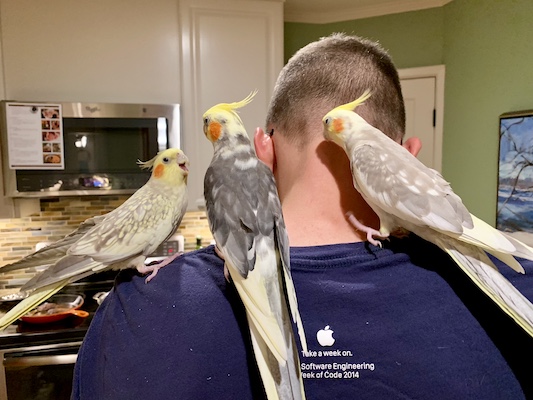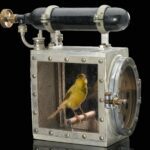
Health of captive parrots
There’s an assumption that captive parrots surely must be healthier and live longer than parrots in the wild. In a home or zoo, for example, they will never starve to death, they will have scientifically advanced diets, and they will be safe from predators. However, a study of 83,212 parrots covering 260 species (nearly 80% that exist) found the opposite.
“Our data indicate that while some captive individuals are capable of reaching extraordinary ages, median lifespans [of captive birds] are generally shorter than widely assumed, albeit with some increase seen in birds presently held in zoos.”
“Survival on the ark: life history trends in captive parrots“—National Institutes of Health—February 2013
Although I wasn’t able to find a good reference for conditions only affecting captive birds, I suspect that among them would be obesity (and related conditions), heart disease, and vitamin deficiencies (specifically A and D3).
As I’ve researched parrots over the decades and applied what I’ve learned (or tested my theories), I always keep in mind that mother nature is currently doing a better job at keeping birds alive and healthier longer despite the advantages a captive bird has. The gap has narrowed but it’s still huge.
It would serve us well to be humble and look to nature for inspiration rather than always assuming we can do better. This drives a lot of what I plan on writing here, while supporting as much as possible with legitimate research.




